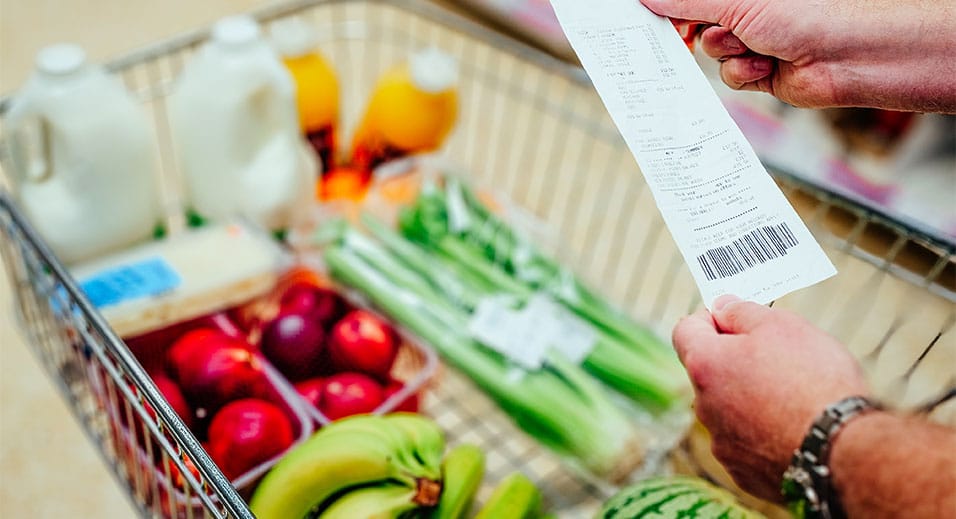A reflection by Curtis Frank, CEO of Maple Leaf Foods.
As we head into the Canadian Thanksgiving weekend, it is a good time to reflect on the things for which we are thankful, but also to remember that more Canadians than ever are struggling to put food on the table, and the opportunities we have to make a difference.
As a purpose-driven company, Maple Leaf Foods is passionate about Raising the Good in Food. Last week, we participated in one of several meetings hosted by the Government of Canada as part of the Government’s call to action around food affordability and stabilizing food prices.
Taking action on food insecurity
The rise in the cost of living, including the cost of food, is making it harder than ever for Canadians to afford the basics. In a recent survey, half of Canadians said they are worse off than two years ago, yet 82% still believe that governments should do more to help people living with food insecurity and poverty. And while food inflation is moving in the right direction, this will not solve the issue of food insecurity.
Food inflation affects all Canadians, but not all Canadians equally. Reports from food banks show that the rising cost of living is forcing an unprecedented number of people to resort to emergency relief to put food on the table. There are now almost seven million people in Canada who are food insecure — over 18% of our population. One in four children live in a food insecure household, and the effects of food insecurity disproportionately impact people with disabilities, Black and Indigenous Canadians. We need public policy to further strengthen our social safety net, and more direct interventions to meet the current crisis.
Through the Maple Leaf Centre for Food Security, we are focused on action that results in structural change, because charitable food relief is not the answer. We are collaborating with non-profit and charitable organizations, the private sector, and governments to advance critical policy changes to address the systemic challenges, and investing in scalable programs that seek to directly support people and households facing food insecurity.
In the face of the near-term crisis, we are also increasing our support for emergency food relief. In addition to our $12 million in financial commitments to community partners and $3.5 million in healthy food donations year-to-date, Maple Leaf Foods and the Centre are undertaking the following immediate actions:
- Contributing an additional $250,000 to support emergency food relief
- Supporting the expansion of school food programs through a $250,000 donation to the Ontario Student Nutrition Program & First Nations Student Nutrition Program
- Scaling projects that provide food prescriptions to people struggling with food insecurity
- Bringing the private sector, civil society, and government together at Food Security Symposium in November to advance cross-sector solutions
There are also important policy measures that can meaningfully help to alleviate food insecurity and improve health and education outcomes for our children. Advocacy that advances public awareness and public policy reform is a critical part of our work. This includes working with federal and provincial governments on initiatives such as:
- Funding a comprehensive Statistics Canada report on food insecurity, to be published in November
- Setting a target to reduce food insecurity by 50% by 2030
- Accelerating the implementation of the Canada Disability Benefit
- Establishing a national school food program
Taking action on food affordability
In addition to the important work that the Centre is leading, Maple Leaf Foods welcomes the opportunity to work alongside other stakeholders to examine how to reduce food system costs and gain efficiencies in order to stem inflation and stabilize food prices.
Canada’s food system is complex and global. Food production operates in a global supply chain that is operationally sensitive, with layers of interdependencies — many of which are driven by dynamics beyond our borders.
Over the last couple years, the unprecedented impacts of the post pandemic economy, combined with extreme weather events and war have been profound. Transport costs ballooned, supply became unreliable, labour availability proved challenging, and we have seen significant increases in input costs, particularly fertilizer and fuel. In this challenging environment, Maple Leaf Foods recorded financial losses last year and in the first half of this year. But we are optimistic that many of the headwinds are starting to subside, creating the opportunity for the industry to stabilize as we move forward.
As the Canadian food industry looks within its supply chain, there has been much talk about the potential benefits of a Grocery Code of Conduct. While it has yet to be finalized, once we’ve had an opportunity to review the final version, our intent is to sign-on to it. We will also be reaching out to each of our customers seeking ways to reduce cost in the supply chain and stabilize food inflation.
I am deeply proud of the work we are doing to advance sustainable, affordable, made in Canada food for consumers, and to reduce food insecurity. We have invested over $2 billion in the past decade in assets and technologies to bolster efficiencies, improve our manufacturing capabilities in Canada, and provide sustainable domestic markets for farmers. We will continue to look for efficiencies, explore innovations, listen to consumers, and work with our customers and suppliers, but our efforts alone are not enough. We welcome opportunities to work with government and other stakeholders to explore structural solutions to help mitigate supply chain disruptions, reduce supply chain costs, enhance investment in innovation and technology, and increase productivity in the food system.
As a proud Canadian company, we are thankful for the role that we play in making the food system stronger, and we look forward to being a partner in addressing food insecurity and affordability.

